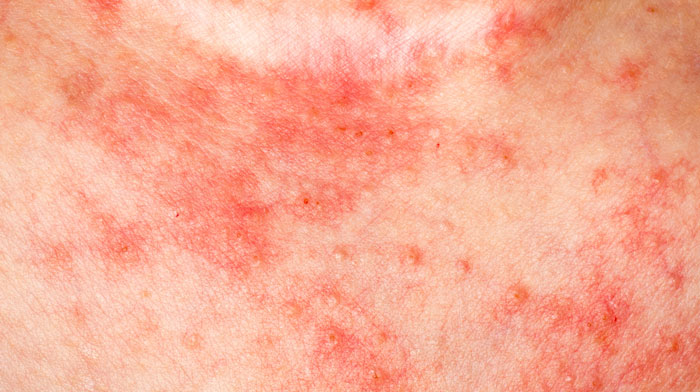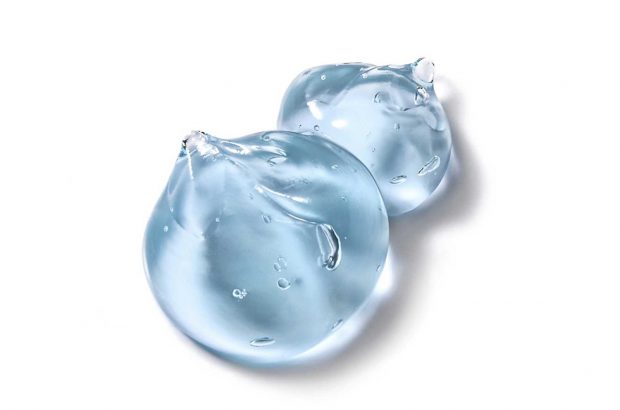Eczema is one of the commonest skin problems seen by dermatologists. Eczema is an itchy and uncomfortable skin condition, which can cause significant distress for sufferers and for parents of children with eczema. A wide number of effective treatments are available. There are several different types of eczema including atopic eczema, contact allergic eczema, discoid eczema, irritant eczema and varicose eczema. The terms eczema and dermatitis are used interchangeably.
Treatments for eczema can behighly effective. They include emollients (moisturisers) which are vital to restore the barrier function of the skin and reduce the penetration of irritants and bacteria into the skin, and topical corticosteroids which are extremely safe when used correctly. Dermatologists are also experienced in the use of newer non-steroid anti-inflammatory creams which often control eczema extremely well with no danger of skin thinning.
Dermatologists will also be able to advise you about how to recognise the signs of eczema infection and be able to treat flare- ups with antibiotics or anti-viral medication. Occasionally some people with more severe eczema may require oral treatments with medications that control the immune cells that drive the eczema.
What is Atopic Eczema?
Atopic eczema is incredibly common in children and like other related conditions, such as allergic asthma has become increasingly common over the last few decades. One in five children born in the UK now develops atopic eczema and sometimes it can be a real problem, causing lack of sleep, slowing growth and causing tiredness and irritability. Parents of children with bad eczema can also suffer hugely. It causes a red, itchy and sometimes weepy rash, which in babies often starts on the face, but in older children often occurs in the skin folds over the elbows and knees. It is a chronic condition and sometimes can flare up badly, for example if it becomes infected. Atopic eczema usually improves with age and most children will grow out of it, but in a minority it can continue into adult life.
What is Seborrheoic Eczema?
Seborrhoeic eczema is incredibly common and is a reaction to the presence of naturally occurring yeast on the skin called Malassesia. This is also the cause of dandruff. People with seborrhoeic eczema usually have slight scalp redness, scale or dandruff with a tendency to red, dry slightly scaly skin on the sides of the nose, the skin folds on the central face, the forehead between the eyes and the ears. The back and chest may also be affected. Seborrhoeic eczema seems to be commoner in people with a tendency to psoriasis or rosacea. Seborrhoeic eczema generally responds very well to treatment with anti-yeast shampoos and anti-inflammatory skin creams which dermatologists can discuss with you
What is Contact Allergic Eczema?
Contact allergic eczema is caused by an allergic reaction to a chemical that is coming in contact with the skin. It is surprisingly common and often seen by dermatologists. The commonest causes of such allergies are metals (such as nickel in jewellery), fragrances in perfumes soaps and shampoos, preservatives in cosmetic creams and lotions, plant-based chemicals occurring in many ‘natural’ or organic products, chemicals used in the manufacture of leather shoes or latex gloves, and medications such as eye or ear drops or topical antibiotics. People can become allergic to products that they have been using quite safely for years, but from that point onwards they will probably always remain allergic to the product. A diagnosis of contact allergic eczema is possible in people who have with otherwise unexplained eczema at certain sites, such as eyelids, faces, hands, feet or genital areas. If this type of eczema is suspected your dermatologist is likely to refer you to a contact allergy specialist dermatologist who can undertake detailed allergy testing (called patch tests) which may identify the cause and enable you to avoid it in future.
What is irritant Eczema?
Irritant eczema is very common, especially in people who wash their hands frequently such as healthcare workers, hairdressers and mothers of small children. It is caused not by an allergic reaction, but by an irritation of the skin caused by soap and the loss of the natural oils from the skin’s surface.
What is Discoid Eczema?
Discoid eczema is seen in adults and typically causes a few well-defined, very itchy and weepy coin-shaped patches of inflamed skin to appear, scattered over the body.
What is Varicose Eczema?
Varicose eczema is also known as gravitational eczema and occurs on the lower legs. It is due to a pooling of blood in the lower legs caused by a poor circulation of blood back to the heart because of leakiness of some of the valves in the lower leg veins. Dermatologists often see varicose eczema in older adults and may suggest ultrasound investigations to assess how well the circulation in the lower legs in functioning, and treatments to improve the flow of blood (such as long compression socks or stockings).







